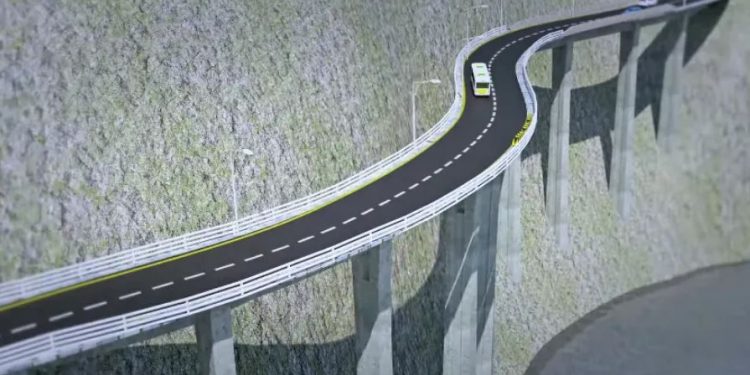New Delhi: The needs of defence and environment have to be balanced and a “nuanced” approach is required, the Supreme Court said Tuesday while hearing an appeal against the widening of roads in Uttarakhand hills for the “Char Dham project”.
While a non-profit had opposed road-widening — citing the felling of trees in the wildlife-rich area that’s leading to increasing instances of landslides — the Centre had sought the court’s approval to widen the roads to border to 10 meters.
The Char Dham highway project which connects the four shrines of Gangotri, Yamunotri, Kedarnath and Badrinath in Garhwal Himalayas, has 899-km road which the Centre wants to broaden near Dehradun.
The top court had earlier said that roads can’t be wider than a total of 5 meters.
The Centre had cited the “tremendous” Chinese troop buildup on the other side and said under the circumstances,” wide roads are of strategic importance”.
“China is building helipads and buildings on the other side… so trucks carrying artillery, rocket launchers and tanks may have to pass through these roads,” Attorney General KK Venugopal had said, representing the Centre.
Senior advocate Colin Gonsalves said, representing the non-profit Citizens for Green Doon, drew the court’s attention to the massive landslides this year, “which has exacerbated the damage on the mountains,” he added.
“I am not going to say that environmental needs trump the defence of the nation but the Army has never said we want these wide roads. Someone high up in political power said we want highways on the Char Dham yatra. The Army reluctantly went along,” Mr Gonsalves said.
He also pointed to an earlier instance when the top court put a freeze on 24 projects, taking cognizance of the issue after cloudburst in 2013. Around 17 hydroelectric projects went bumper to bumper in the Himalayas and the cloudburst damage was caused due to such projects, Mr Gonsalves said.
The court said defence of the nation is a priority and requires upgradation.
“Defence concerns cannot be over-ridden especially in light of border incidents in the recent past. We do not want the troops to be caught in 1962 situation,” said the three-judge bench.
But Justice DY Chandrachud, who was part of the bench said both needs of defence and environment “have to be balanced”.
“We must tell you our predicament in this,” he said. “If the Centre says they are doing it for tourism, then we understand and we can impose more stringent conditions. But when it is needed to defend the borders then it is a serious predicament and court has to be more nuanced.”
The court, he said, cannot deny the fact that at such a height the security of the nation is at stake.
“Can the highest constitutional court say that we will override the defence needs particularly in the face of recent events especially for environmental concerns — or should court have more nuanced approach?” he said.
Pointing to the rapid melting of glaciers, he said it is also happening due to rampant developmental projects.
“Can we say that environment will triumph over the defence of the nation? Or we say that defence concerns be taken care of so that environmental degradation does not take place,” said Justice Chandrachud.
Justice Surya Kant asked Mr Gonsalves if he had any reports on the condition of the Himalayas on the other side of the border where the Chinese have allegedly constructed buildings and establishments.
“The Chinese government is not known for protecting the environment. We will try and see if we can get any reports on what is the situation there,” Mr Gonsalves said.
The hearing will continue tomorrow.







































